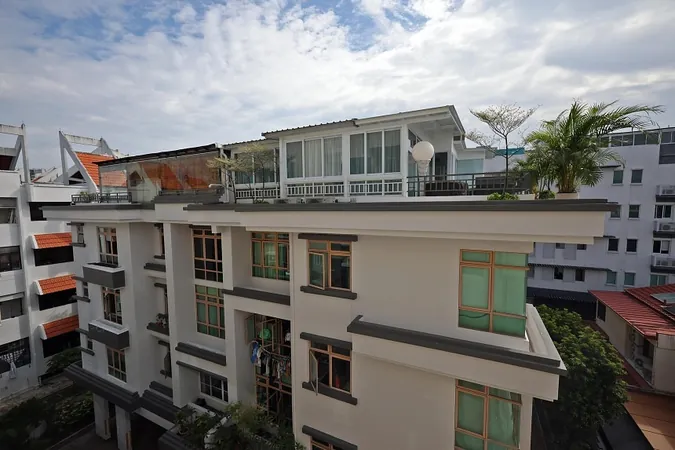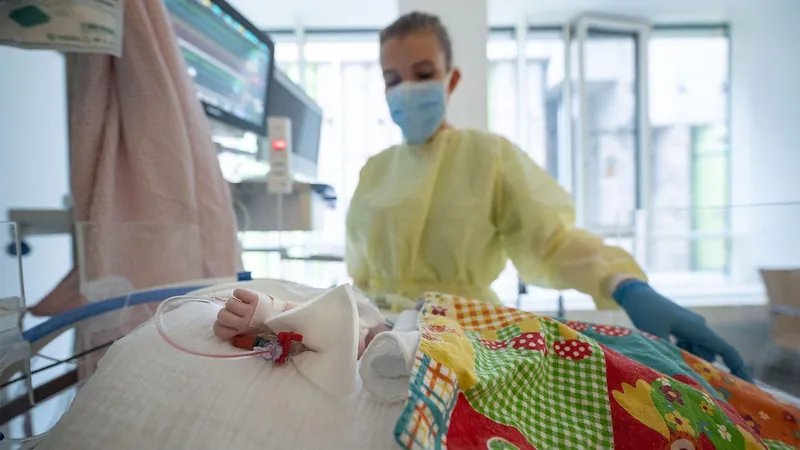
Major Changes Ahead: BCA Reviews Rules for Home Alterations Without Approval
2024-10-02
Author: Jia
SINGAPORE –
The Building and Construction Authority (BCA) is taking a significant step by reviewing the guidelines surrounding building works that property owners can undertake without official approval. This review is crucial, especially as BCA has reported a surge in investigations into unauthorized structures in recent years.
A statement released to The Straits Times on October 1 revealed that from 2020 to 2023, BCA handled an alarming average of 120 cases of unauthorized building works annually. The majority of these cases involved improvised shelters on the ground floors and makeshift roof covers, structures which BCA noted do not typically affect the building's overall stability.
This issue has become more pressing compared to earlier years, with reports showing that the average was just 57 cases per year from 2016 to 2018. The current figures illustrate a concerning increase more than double the previous rates. Notably, BCA did not disclose statistics for 2019, leaving a gap in the historical data.
Instances of unauthorized structures continue to capture headlines, including a highly publicized case in 2023 where a co-owner of a property agency faced fines totaling $50,000 for constructing an illegal mezzanine floor exceeding 5,000 square feet in size at The Alexcier, a light industrial property. Similarly, in 2022, a penthouse owner at Skies Miltonia in Yishun was ordered to dismantle unapproved rooftop features.
Presently, BCA guidelines mandate approval for most building works, including erecting structures, making extensions, or altering existing buildings. Any modification that increases gross floor area (GFA) or impacts planning parameters also requires Urban Redevelopment Authority (URA) approval. Minor modifications, such as erecting a small open-sided shelter or gazebo of less than 10 square meters, are exempt from BCA approval.
Upon receiving reports regarding unauthorized structures, BCA prioritizes safety assessments. Should a structure be deemed unsafe, the authority is empowered to issue a dangerous building order, compelling the owner to demolish or rectify the hazard. BCA has emphasized that property owners wishing to keep unauthorized structures must regularize them according to URA and BCA standards, which may include fees for additional GFA or professional assessments for compliance.
In the case of condominiums, responsibility for structural property lies with the management corporation strata title (MCST), which must ensure no unauthorized works are allowed. Failure to do so may lead to legal repercussions.
Under current regulations, those undertaking building works without the necessary approvals could face fines up to $200,000 or imprisonment for up to two years, or both. With the BCA's review underway, industry experts have expressed hopeful sentiments about possible clearer guidelines that could benefit both property owners and contractors alike.
Architect and director of P&T Consultants, Mr. Kingsley Ng, noted that unauthorized works are especially common in smaller residential developments lacking active MCST oversight, leading homeowners to modify their units without fully understanding the regulatory implications.
Construction company director Goh Boo Kui echoed these sentiments, emphasizing the need for a stricter approach to mitigate accidents caused by unauthorized structures. The ongoing review by the BCA could pave the way for essential reforms in Singapore's building practices, potentially ensuring safer living conditions across the island.
As the BCA moves forward with this vital review, property owners are urged to assess their building works and seek guidance to navigate the complexities of approval requirements. This initiative may not only curb unauthorized structures but also enhance the overall safety and integrity of Singapore's architectural landscape.





 Brasil (PT)
Brasil (PT)
 Canada (EN)
Canada (EN)
 Chile (ES)
Chile (ES)
 España (ES)
España (ES)
 France (FR)
France (FR)
 Hong Kong (EN)
Hong Kong (EN)
 Italia (IT)
Italia (IT)
 日本 (JA)
日本 (JA)
 Magyarország (HU)
Magyarország (HU)
 Norge (NO)
Norge (NO)
 Polska (PL)
Polska (PL)
 Schweiz (DE)
Schweiz (DE)
 Singapore (EN)
Singapore (EN)
 Sverige (SV)
Sverige (SV)
 Suomi (FI)
Suomi (FI)
 Türkiye (TR)
Türkiye (TR)